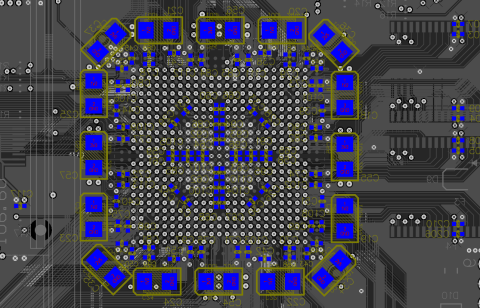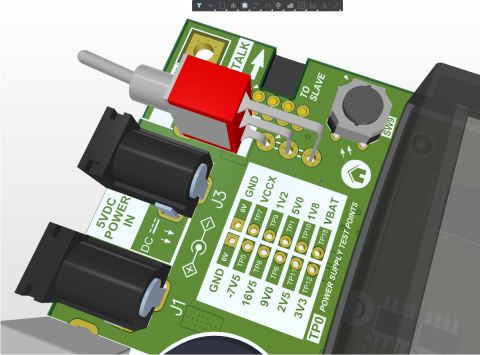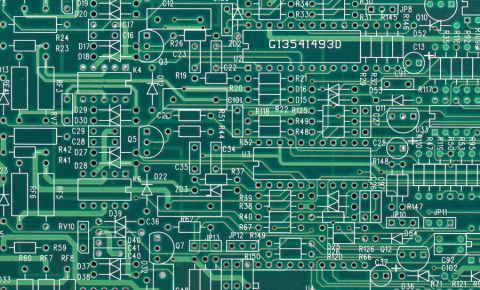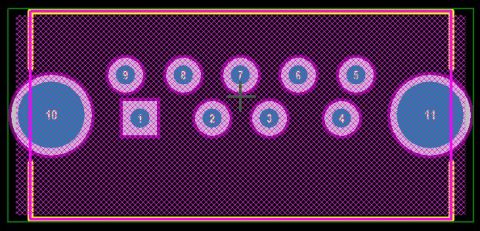PCB Designer Cherie Litson: Accomplished BSEE and Master CID Instructor

Warner: Cherie, can you tell us about yourself and your career path as a designer?
Litson: I started out in 1971 as a drafting trainee (supported the Nevada test site), then I worked my way up to become a mechanical and electrical drafter. I was exposed to designers who designed electronics with intricate tape ups. I became fascinated with the artistry and watching them make these amazing layouts. I thought to myself: “I’m going to do that someday.” Soon after I realized I needed electronics knowledge, so I went back to school and became an EE. Still, I realized I didn’t know enough about designing with manufacturing considerations! So, I got involved with IPC and learned what the manufacturing issues were. This transformed me and gave me a holistic understanding of the mechanical, electrical, and manufacturing factors that all go into a good board design.
I got my CID in 1998, and my CID+ in 2002. I became a CID Instructor in 2006 and a CID+ Instructor in 2008. In 2016, I became an IPC Master instructor and was taught by two industry giants: Gary Ferrari and Dieter Bergman.
Dieter was tough, and at first, I didn’t like him. Eventually, we became good friends. I came to understand his commitment to the industry and his passion for PCB design. Gary was great because he made sure there was understanding relative to the design’s impact across the whole supply chain. Back then, PCB design schools used to exist.
Two other great mentors were Glen Wells, who has passed away, and Mary Sugden who is now retired. Mary has a special ability to explain complex concepts in an easy to understand method. I have tried to emulate Mary in that regard.
There is no clearly defined path to becoming a PCB designer, and most people seem to fall into it the same way I did.
Warner: Looking back, what were early clues that indicated you would become a designer?
Litson: I was very good at puzzles, I loved art, and building things, like huts or teepees with my brothers. I always tried to out build my brothers and make better structures. I also loved to play with Lincoln logs.
I went to grade school in the 50’s, and high school in the 60’s.There weren’t a wide variety of opportunities for women from which to choose a career path. There were many assumptions about what a woman would or could do in a career. I took an aptitude test that said I should be a dental hygienist (laughs). Family members thought I’d make a good secretary, so I took shorthand and typing—which I hated! Absolutely nothing to do with engineering!!
Warner: Do you think any unique benefits or challenges exist for women engineers and designers today?
Litson: Not so much anymore. When I was younger, there was a challenge to be listened to in meetings, or being taken seriously. There has been a definite shift due to the push from IPC to have CID and CID+ certified designers. Now all certified designers are more recognized and respected. The certification is the proof of what you know and acknowledges your expertise. CID training began being offered around the late 1990’s.
Men and women are different—no right or wrong—just different, especially how we react to different stimuli. I love to golf. I am part of the Executive Women’s Golf Association. What happens on the golf course helps us to understand what happens in a boardroom. It’s very helpful to understand those differences in business! In general, women tend to be social, competitive, and very self-conscious of how they affect others. Women thrive in an encouraging environment. Men tend to thrive when teased, goaded, or openly challenged. They want and need the push. Men tend to slip into a comfort zone in an overly encouraging environment. When women are teased or goaded excessively, they often perceive it as a put-down and take it personally. How do you increase your business skills? Listening, learning, and doing. How women approach life, games, and business shows up on the golf course! There are always drinks and socializing afterward and some great networking which has helped my business. They also have seminars and training throughout the year as well.

Warner: What advice would you give to someone thinking about a PCB design career?
Litson: Get a good mentor, maybe more than one. One whom you can trust and call at any time to ask questions. Get proper training, of course! Always be willing to learn something new. The industry and technology are always changing and there is always something to learn!










 Back
Back